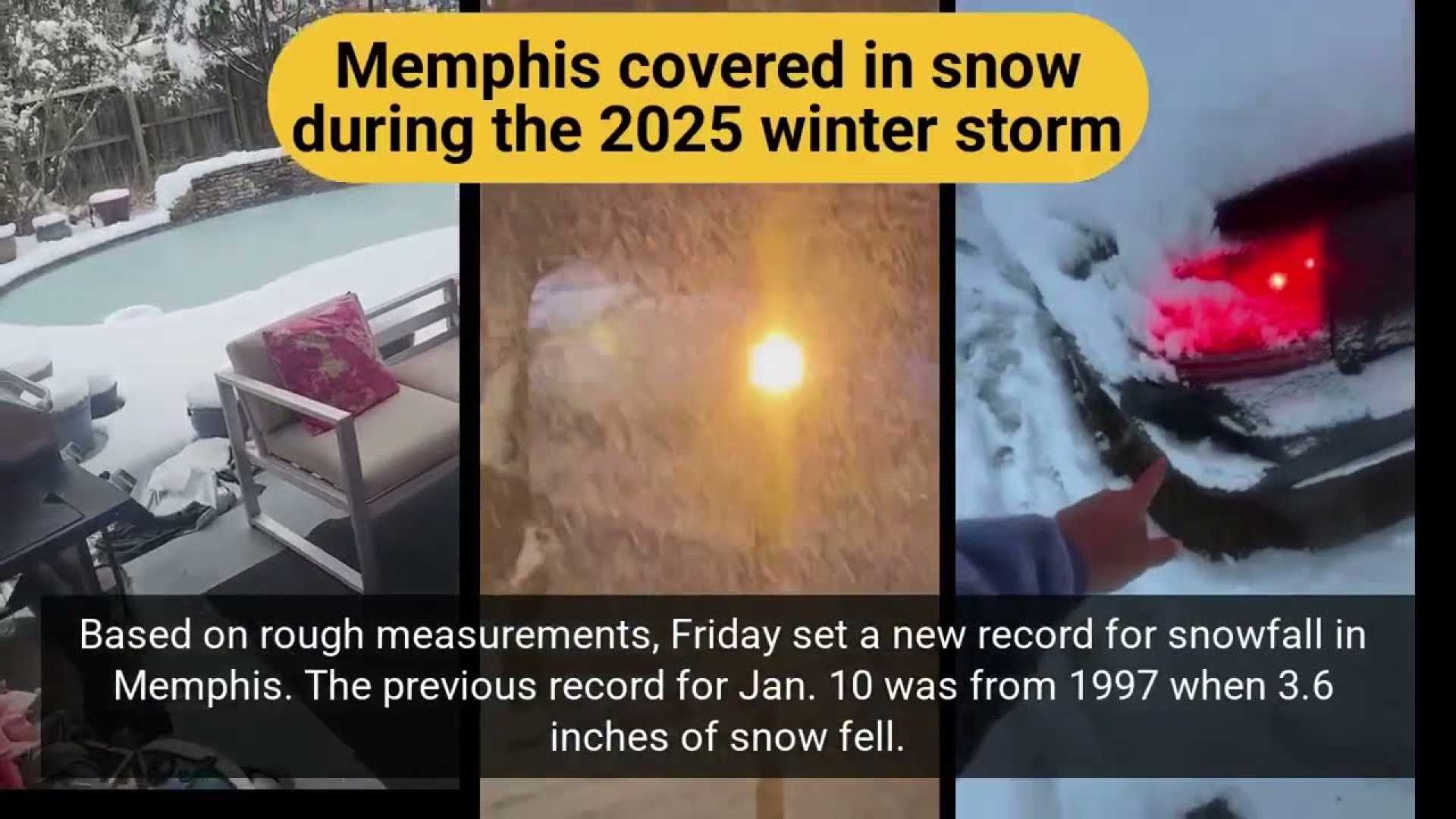News
Southern U.S. Digs Out After Record Snowfall, Flight Cancellations Pile Up

Millions of people across the southern United States are grappling with widespread closures and hazardous conditions after a historic winter storm dumped record-breaking snowfall across the region. Memphis, Tennessee, recorded 7.5 inches of snow on Friday, marking the city’s highest single-day snowfall in 40 years, according to weather records. Atlanta, Georgia, saw 2.1 inches, its largest snowfall in seven years, while Arkansas measured up to 14 inches, Oklahoma received a foot, and parts of Texas and northern Alabama saw significant accumulations.
The storm, which has now moved north and east, left behind icy roads and disrupted travel. Over 328 flights were canceled at Hartsfield-Jackson Atlanta International Airport by Saturday morning, with 20% of those being departures, according to FlightAware. State officials in Tennessee and Texas urged drivers to stay off the roads due to dangerous conditions, and the NBA postponed Saturday’s game between the Houston Rockets and Atlanta Hawks.
Scott Carroll, a meteorologist with the National Weather Service (NWS) in Atlanta, warned that melting snow could refreeze overnight, creating treacherous conditions. “I definitely don’t think everything’s going to completely melt,” Carroll said. “Especially the secondary roads will probably still have some slush on them.”
Air travel disruptions extended beyond Atlanta, with Charlotte Douglas International Airport also reporting significant cancellations and delays. Delta Air Lines, the largest carrier at Atlanta’s airport, announced efforts to recover from Friday’s 1,100 flight cancellations, though morning flights on Saturday were most affected due to crew and aircraft displacement.
In Richmond, Virginia, a boil-water advisory was lifted Saturday morning after a snowstorm earlier in the week caused a malfunction in the city’s water system. Mayor Danny Avula confirmed that lab tests showed the water was safe to drink, ending a week-long ordeal for over 200,000 residents.
The storm also brought freezing rain and ice accumulation to parts of the South, causing power outages for more than 110,000 customers. While most power had been restored by Saturday, high winds posed additional risks in areas where ice remained. Western North Carolina saw up to 4.5 inches of snow, while middle Tennessee recorded nearly 6 inches.
Earlier in the week, the storm had already caused chaos in Oklahoma and Arkansas, prompting governors to declare states of emergency and mobilize National Guard troops to assist stranded motorists. Schools across the region, from Texas to South Carolina, were closed on Friday, giving millions of children a rare snow day. Officials in northern Alabama warned that schools might remain closed on Monday if icy conditions persist.
This winter storm, fueled by a polar vortex that dipped unusually far south, has raised questions about the increasing frequency of such extreme weather events. Some experts attribute this trend to a warming climate, which can disrupt atmospheric patterns and push frigid air into typically milder regions.












